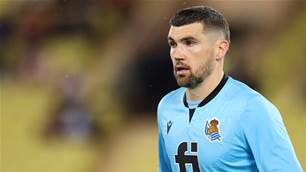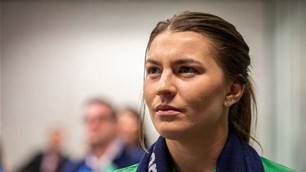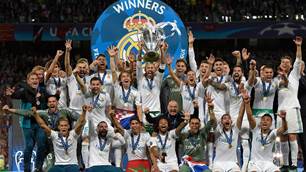UEFA general secretary Gianni Infantino has admitted there were times when he wondered whether Ukraine would prove itself fit to host Euro 2012.
Although there are some issues still to be resolved - including road signage - and others, such as general transportation, that cannot be improved to western European standards by next summer, Ukraine was able to stand tall today as it prepared to host the draw for the finals.
When the opening match gets under way in Warsaw on June 8, it will represent the first time a major international soccer tournament has been played in eastern Europe as Ukraine and Poland play the part of co-hosts.
Organisers feel it will pave the way towards a successful 2018 World Cup in Russia, in addition to broadening horizons within the traditional European economic powerhouses.
But, seated in the vast Olympic Stadium, where the final of Euro 2012 will take place on July 1 next year, Infantino acknowledged there have been occasions when difficulties seemed insurmountable.
"We always believed everything would work and you can see the enthusiasm of the people in Poland and Ukraine," he said.
"But there were some moments when we thought 'ooh la la, how can this work?'."
The key meeting turned out to be in Bordeaux, just over three years ago.
Against a backdrop of changing the balance from four host venues in each country, or adding Germany as a third host, or even pushing Poland and Ukraine back four years to 2016 and announcing the 2012 tournament would go to a different place entirely, UEFA emerged to restate their confidence that the tournament could go ahead as planned.
"That was very important," said Infantino. "It was crucial to the whole thing.
"We have had a few hot moments since but we had some tough discussions and have come together to create history."
It represents a personal triumph for Ukraine Football Federation president Grigoriy Surkis, who staked so much of his reputation on ensuring the pledge made to UEFA when they confirmed hosting rights in 2007.
"To some people it seemed like an unachievable dream," said Surkis.
"In the old Soviet Union, we had five-year plans. This was one and a half.
"We had to create an infrastructure, for airport terminals, runways and roads. We had to try and bring European living standards to the Ukraine."
The quest went far beyond hosting a football tournament, with Surkis admitting the risk to Ukraine's hoped-for inclusion in the European Union was immense.
"If we did not deliver, we knew what it would mean in terms of importance, reputation and image," he said.
"If we had refused this tournament we would have refused from Europe. We would not have been trusted any more. It would have cost us a lot. Our image would have been very low."
So, though the budget was blown, work continued, and will continue to do so.
"We need the people who provide the services, the policemen, the language students," he said.
"We don't speak languages like other countries in Europe."
The stench of corruption lingers.
Surkis was not interested in speaking about the arrest of former Prime Minister Yulia Tymoshenko.
And beyond confirmation that talks were planned between UEFA and the Polish football authorities in the wake of corruption allegations levelled against federation president Grzegorz Lato, Lato himself kept discussion to purely football matters.
It is hardly ideal and Surkis' insistence in claiming the Tymoshenko issue was political, and therefore not the right discussion topic for a sporting forum like this afternoon, is simply not credible given he was the one who brought the European Union into the debate.
However, Surkis had a point, which for all the flaws contained within the argument, was a valid one.
"Europe does not end in Vienna, Geneva and Basle," he said.
"There is an east, not just a west."
Related Articles

Socceroos Abroad: European Play-off Round Draw Results

Late change puts 5 Matildas in Champions League quarterfinals













